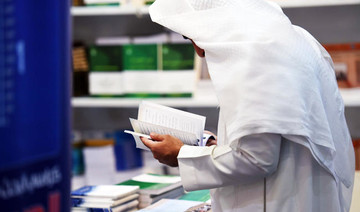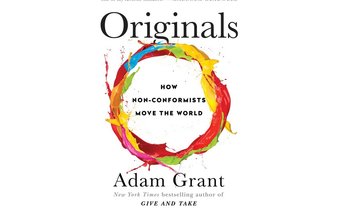Nowadays, successful people always seem to be living in the fast lane. Always super-busy and faithfully multitasking, they check their e-mails on their laptop and answer a call on their landline while sending off a text from their mobile. Can we still be happy and successful if we live in the slow lane? Are these two modes of being opposed to each other? Is new technology disconnecting us from one another and even from ourselves?
David Levy, a computer scientist, has lived in the fast world but he has always yearned for a quieter and more contemplative life. In the slow lane, he discovered the art of calligraphy, which requires time, patience and concentration.
Levy’s new book, “Mindful Tech: How to Bring Balance to Our Digital Lives,” is a reflection on our relationship with digital tools, social media, smartphones and the Internet. There is a growing awareness that digital devices hijack our attention and are even addictive.
We are now faced with the following dilemma, explains Levy: “Our devices have vastly extended our attentional choices, but the human attentional capacity remains unchanged. (Some would even argue that it has actually shrunk.) And so we must figure out how to make wise choices, and to figure out what constitutes a wise choice, so we can use our digital tools to their best advantage and to ours.”
Levy believes that our online activity is a craft; in other words, a task which should be carried out skillfully. Levy mentions that craft played an important role in everything Apple founder Steve Jobs accomplished. Jobs, Levy says, was also introduced to calligraphy, when he was studying at Reed College. He took a calligraphy class in which he learned about varying the amount of space between different letter combinations and about what makes great typography great.
“It was beautiful, historical, and artistically subtle in a way that science can’t capture, and I found it fascinating… If I had never dropped in on that single course in college, the Mac would have never had multiple typefaces or proportionally spaced fonts,” Jobs later explained.
Jobs made it a point to craft functional but beautiful products and, Levy argues, we should learn how to craft online practices that are efficient and purposeful.
One essential principle in this book is that we perform best when we are attentive and relaxed. However, when we are online, we are mostly distracted and not at ease. We automatically check our e-mails and Facebook before focusing on the task we are supposed to get done. We tend to be tremendously impatient — when a page fails to load quickly in our web browser, we cannot wait and instead move quickly to another task.
All of these micro-decisions are driven mainly by unconscious emotional reactions, which make us waste time and have a disproportionate impact on what will happen during the rest of the day.
Levy believes we need to take charge of our online lives. Once we decide to pay attention to the way we work and the choices we make when we are online, we are in a better position to act more efficiently. It is very easy to lose track of our priorities, because there are so many things ready to grab our attention. The best strategy to cope with so many tempting distractions is to be mindful so that we focus on what is important to us.
One major belief that prevents us from being mindful while we are online is that multitasking can help us achieve more in less time. Many educators argue that multitasking is a useful skill, particularly when it comes to modern technology.
However, there is a misconception regarding multitasking. We understand that multitasking means performing several tasks at the same time, but we commonly use it to mean we are switching between several tasks. The root of the problem is why we switch tasks. It can be hard not to look at a new message, or not to check who is calling our phone. The truth is that our thoughts, feelings and emotions often lead us to switch tasks unconsciously.
According to Eyal Ophir, who conducted a study on multitasking when he was a researcher at Stanford University, people who are heavy multitaskers may — in the long run — be training themselves not to focus.
“You teach yourself that something more exciting might be just around the corner, behind that notification, or the app on your mobile phone, or the e-mail you haven’t checked,” he said.
In other words, people who are constantly multitasking have different priorities. They are willing to give up the advantages of focus so they do not miss an unexpected but rewarding surprise.
Levy believes that it is possible to multitask in a calmer and more focused way. Whether we are online or not, our lives are a succession of moments determined by the choices we make. All we need is to make skillful choices and stay focused or shift our attention as necessary.
“I sense that we as a culture may be preparing to enter into a broader and deeper conversation about the place of all things digital in our lives,” says Levy. He worries about the effects of distraction, mindless acceleration and the loss of attentional acuity, but does not think that the internet is the cause.
In “Mindful Tech,” Levy encourages the reader to nurture habits of mind and body that can help us make good use of new technologies.
For example, a team of neuroscientists studied how our brains react to negative news concerning political candidates. The study showed that we react well to candidates whose opinions are similar to ours. When candidates voice unacceptable positions, brain centers concerned with emotion rather than reason are active. The study concluded that it is possible to ignore these unconscious reactions as long as we engage in honest self-reflection.
“Mindful Tech” is all about creating a more aware and more meaningful relationship with our digital devices.
“For two decades, I have been bringing people together to talk about the place of digital technologies in their lives,” Levy concludes. “What I have discovered along the way is quite simple: When we talk about the technologies, we are ultimately talking about our lives, and about their meaning and value. And when we come together to have caring and careful conversations about the place of the technologies, we establish an intimacy of connection that many of us long for.”
Book Review: Creating a more meaningful relationship with our digital tools
Book Review: Creating a more meaningful relationship with our digital tools

What We Are Reading Today: ‘Intraterrestrials’ by Karen G. Lloyd

Life thrives in the deepest, darkest recesses of Earth’s crust—from methane seeps in the ocean floor to the highest reaches of Arctic permafrost—and it is unlike anything seen on the surface.
“Intraterrestrials” shares what scientists are learning about these strange types of microbial life—and how research expeditions to some of the most extreme locales on the planet are broadening our understanding of what life is and how its earliest forms may have evolved.
Karen Lloyd takes readers on an adventure from the bottom of the ocean through the jungles of Central America to the high-altitude volcanoes of the Andes.
What We Are Reading Today: ‘Designing San Francisco’ by Alison Isenberg

“Designing San Francisco” is the untold story of the formative postwar decades when US cities took their modern shape amid clashing visions of the future.
In this pathbreaking and richly illustrated book, Alison Isenberg shifts the focus from architects and city planners—those most often hailed in histories of urban development and design—to the unsung artists, activists, and others who played pivotal roles in rebuilding San Francisco between the 1940s and the 1970s.
What We Are Reading Today: Supply Chain Justice by Mary Bosworth

In the UK’s fully outsourced “immigration detainee escorting system,” private sector security employees detain, circulate and deport foreign national citizens. Run and organized like a supply chain, this system dehumanizes those who are detained and deported, treating them as if they were packages to be moved from place to place and relying on poorly paid, minimally trained staff to do so. In “Supply Chain Justice,” Mary Bosworth offers the first empirically grounded, scholarly analysis of the British detention and deportation system. Drawing on four years of extensive ethnographic research, Bosworth examines what keeps the system in place and whether it might be effectively challenged.
Told by a senior manager that “this is a logistics business,” Bosworth documents how the public and private sectors have built a supply chain in which people’s humanity is transformed both symbolically and tangibly through administrative processes and bureaucracy into monetized, measurable units.
Like all logistics, the system has failure built into it.
Book Review: ‘America’s View of the East, Cinematically’ by Abdulmohsen Al-Mutairi

Saudi journalist, filmmaker and cultural commentator Abdulmohsen Al-Mutairi launched his long-anticipated book — “America’s View of the East, Cinematically” — at last month’s Saudi Film Festival.
Cementing his reputation as a vital voice at the intersection of cinema and Arab identity, the book is a natural progression from his award-winning documentary, “Memories From The North,” tackling Western portrayals of the East with the same precision, intellect and emotional clarity.
Al-Mutairi drew wide attention for his documentary, which offered a poetic look at the Gulf War of 1990-91 and was named best short documentary at the 2022 festival.
“The documentary looks to me like a chapter in a book, because both memories and the war look like chapters to us. To me, the war is a timeline, there is a beginning, middle and an end,” Al-Mutairi told Arab News at the time.
“America’s View of the East, Cinematically” continues that mission, serving as both critique and chronicle of how Arab and Eastern identities have long been distorted by the cinematic lens of the West.
“This encyclopedia will be a building block added to what the Saudi Film Festival has started since its launch in 2008 and an effective tributary in the path of Saudi cinema, reinforcing what the festival organizers believe in and what they seek to achieve by emphasizing that the film industry must be accompanied by a knowledge industry directed at those working in the local and Arab cinema field,” according to its introduction.
More than critique, the book offers a kind of cinematic reclamation.
What We Are Reading Today: ‘The Book of Alchemy’ by Suleika Jaouad

In “The Book of Alchemy,” Suleika Jaouad explores the art of journaling and shares everything she’s learned about how this life-altering practice can help us tap into that mystical trait that exists in every human: creativity. She has gathered wisdom from one hundred writers, artists, and thinkers in the form of essays and writing prompts. Their insights invite us to inhabit a more inspired life.



















